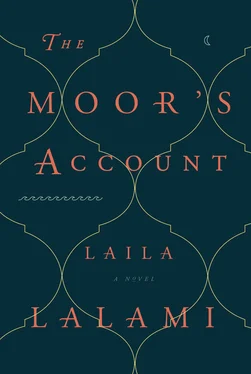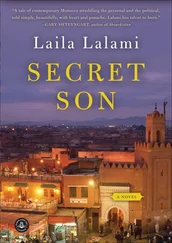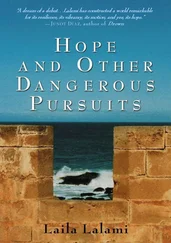I nodded and turned around to get Oyomasot.
The labor lasted all night. I went out to tether the dogs, but they kept barking and jumping and running around in circles, as if they sensed what was happening inside, so I relented and brought them with me into the living room. I found Dorantes sitting by himself, wrapped in a Spanish blanket. If it is a girl, he said, I will name her Pilar. Or maybe Ximena. My aunt is named Ximena.
In the dark, the living room seemed bleaker than ever. I put fresh logs in the fireplace and started a fire. As I worked, the dogs stood on either side of me, and when I sat on the armchair they came to lie at my feet. In just a few weeks I had grown attached to them. Whenever the weather allowed, I took them to the lake, around which they could run free for a while. I enjoyed these walks, for they gave me a good pretext to be out of the guesthouse, where there was constant talk of the future. I needed some time to myself to consider how I might solve my predicament.
Dorantes spoke again. I remember the day my brother Diego was born, he said. I was thirteen. I was with my tutor in the study when one of the servants came to inform me that my mother had gone into labor. My father was in Extremadura that week. Of course, I sent for the doctor, but the doctor was not home either, and the servant had to go looking for him. I was sick with worry; I felt I had been left alone to shoulder the heaviest burden in the world. But in the end, it was the laundress who delivered Diego. I remember she came out into the hall to show him to me, all wrapped up in his linen sheets. He was so small. I was afraid I might break him if I touched him.
What if it is a boy? I asked. What will you name the baby if it is a boy?
Dorantes seemed on the verge of saying something, but in the end he did not reply. He fell asleep after a while and I think I did, too, because the next thing I remember there was a creak as the door opened. It was already morning and the first rays of sun filtered through the windows. It is a girl, Oyomasot said with a smile.
Though my wife looked reluctant to give up the baby, still moist with afterbirth, Dorantes stood up to receive her. How beautiful she was. A round-faced girl with a tiny mouth and long-lashed eyes that surveyed our messy world with astonishment. I kept my gaze averted, but I knew that, like Oyomasot’s, it was filled with envy.
Now, with his child in his arms, Dorantes sat down by the fireplace again. Good morning, he cooed. Good morning, little lady.
The girl would be named Ximena María, but everyone would call her María la Mestiza. She would be held and kissed and nursed and swaddled and sung to for days on end, but by the festival of the Resurrection, Dorantes would send her to live in a Spanish convent ten leagues north of the city.
IT WAS AN EARLY SPRING that year. The clouds disappeared almost overnight and the warm weather made the orange trees in the courtyard erupt with early buds. Dorantes had reluctantly begun his preparations for the journey to Seville when Viceroy Mendoza sent word that he wanted to see the two of us. I wonder what he wants, Dorantes said as we walked from the guesthouse to the palace.
At the gates, Dorantes stopped to check that his breeches were properly tucked in and as my gaze fell I noticed on the ground a wooden charm in the shape of a hand. How odd, I thought as I picked it up. Had it been made in Tenochtitlán or had it been brought here from somewhere else? It looked just like the amulets my mother used to wear, except hers were made of metal rather than wood. I pocketed the little charm, thinking it a sign of good luck.
We were ushered into the viceroy’s private office, a high-ceilinged room where plumed statues of Aztec warriors watched us from each of the four corners. On the walls were portraits of King Carlos and Queen Isabella, and a painting of the Prophet Jesus with his apostles. The viceroy was sitting on an armchair, his leg in the lap of an Indian servant, who was tightening the buckle of his shoe. The heavy rugs that covered the floors muffled any sound we made when we entered the room, so that neither Mendoza nor his servant heard us. Dorantes had to clear his throat before the viceroy noticed us. He waved the servant away and stood up. Ah, Capitán, he said. It is so kind of you to come.
Thank you for inviting me, Dorantes said.
But I hear you are already leaving us? the viceroy asked.
In a few weeks. I am returning to Seville.
Might we not be able to convince you to stay with us a little longer?
Your Highness is much too kind.
The journey to Castile is long.
Indeed it is.
Mendoza’s voice turned grave. And longer yet is the effort to get a grant from His Majesty. It can take years. A decade even. But if you stay in New Spain and serve the Crown in a different capacity, your efforts will be rewarded. I am preparing an expedition to the Seven Cities.
On hearing this name, a feeling of dismay brimmed up within me. I had heard about the Seven Cities months earlier, but thought them nothing more than a legend, the kind of story that could be used to entertain children on a cold winter night. In the eighth century, some people said, when the Moors conquered the kingdom of Portugal, seven bishops fled the continent with their followers and sailed westward across the ocean. They reached a vast, fertile island, where each of them founded a city. These cities prospered so much that they came to be called the Seven Cities of Gold.
Mendoza had all of the gold of Tenochtitlán, I thought, and yet he wanted more. In my younger years, such greed would have seemed ordinary to me, desirable even, but nowadays I found it only distasteful and destructive. It was greed that had led me to leave the notary’s life for the trader’s life, it was greed that had convinced me to sell men into slavery, and it was greed that had led the three hundred men of the Narváez expedition to perish in La Florida.
Do you remember, Mendoza asked, the story you told us some months ago?
Dorantes and I glanced at each other. We had told many stories of our adventures at the dinner parties to which we had been invited and some of these stories had acquired a few embellishments along the way. So we could not be sure which one the viceroy had in mind.
With a smile, Mendoza said: You said that the Indians in the permanent settlements north of Nueva Galicia often spoke about cities that shine brightly in the sun so that a visitor, standing from afar, must look away from the light reflecting on their gates or risk blindness. These must be the Seven Cities.
Your Highness means to send an expedition?
Yes, but it is a small one. Two friars, some horses, a detachment of Amigos. Nothing too large or complicated. A man of your experience should not find it too difficult.
It is not difficult, Dorantes said cautiously, and I would offer to go were it not for the fact that our ordeal in La Florida and beyond has left me with no desire to explore new lands. Have you considered Capitán Castillo?
Indeed I have. But — how shall I put this? — he seems to me to be a little soft. He was, what, eighteen or nineteen when you left Seville? He has spent nearly a third of his life with the Indians, and it seems to me he is far too biased in their favor.
I know not what to say, Your Highness. Castillo is a faithful servant of the Crown.
Oh, no doubt. He is a good man. I just do not believe he would be appropriate for the mission I have in mind. I thought you would be better suited.
Your Highness flatters me. But, as I said, the thought of exploring new territory is not one I can contemplate for myself at the moment.
Perhaps we might come to a different understanding, then? I am told that the Indian women you brought with you have finished their Christian instruction. They will make appropriate guides for this mission. But I would also need someone who can help the friars and horsemen cross the northern lands in safety, someone with the kind of power you wielded when you lived among the savages. A sort of ambassador, if you will. Someone like your Esteban.
Читать дальше












